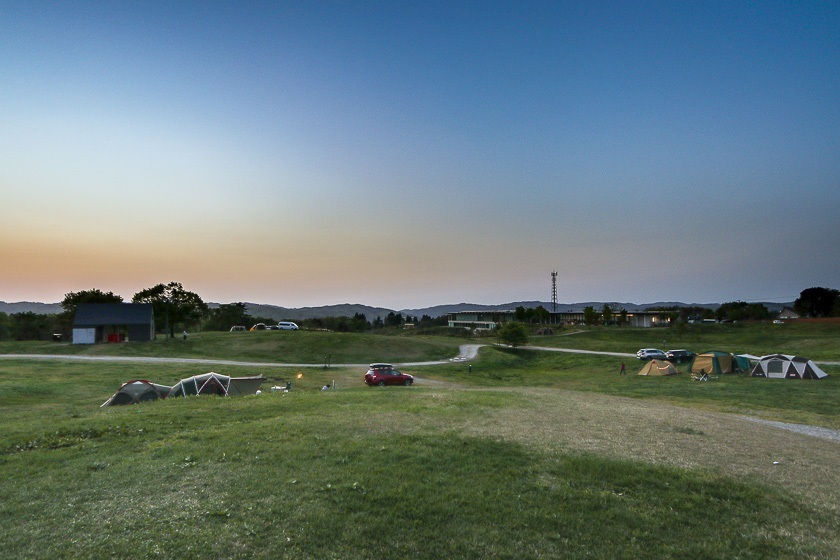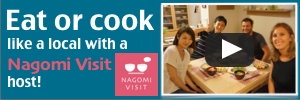Traditional craftsmanship in Tsubame-Sanjo

Wanting for a change of pace and to get out of the city, I headed to the cities of Tsubame and Sanjo in Niigata Prefecture. Often collectively referred to as Tsubame-Sanjo, the cities are not as well-known compared to the capital city of Niigata further north and the ski region of Yuzawa in the south. Despite being low on the tourist radar, the two cities are home to so many quality products that are sold all across the country as well as internationally.
The best way to access both cities is by taking the Joetsu Shinkansen to Tsubamesanjo Station. The one way journey from Tokyo takes about two hours and costs 9000 yen one way. Note that the trip is fully covered by the Japan Rail Pass but not the Tokyo Wide Pass. It is recommended to get a rental car at Tsubamesanjo Station as the spots are spread out across a 15 kilometer radius from there, and many are not served by public transport.


For our May edition of Chotto Zeitaku, I wanted to go back to the basics, back to when things were done the traditional way. Tsubame-Sanjo is all about locally designed handcrafted goods and the perfect destination for those who want get to know Japanese craft. With their reputation of being a craftman's town, one of the interesting festivals hosted by Tsubame-Sanjo is the Kouba Festival which is typically held in autumn. The festival is a product born from the local factories collaborating to showcase their products and techniques. A number of businesses participate in an open factory programme welcoming visitors to their showroom and factory grounds, and some remain open for viewing outside of the festival. I visited those factories to learn more about their craft.


I started my day at Marunao, a brand specialising in table products made of wood, mainly chopsticks. With cheap chopsticks as well as disposable ones widely available, I was a little skeptical about how superior chopsticks could get. However, I was convinced about chopstick quality after picking up a pair which was well weighted and balanced, making it comfortable to hold. Who would have thought I would learn to have chopstick preferences! As a brand participating in the open factory programme, it was nice to be able to view the chopstick making process. Everything was made on location, from cutting the wood to sanding the final product before it gets cleaned and boxed for sale. All that work for a single pair of chopsticks made me appreciate the value of a handmade product.





Not far away is Suwada, a brand that specialises in nail clippers. How do you build a company just around nail clippers you may ask. I have heard of knife companies that also make nail clippers, but it's a first for me to see a company that sells nail clippers as their main business. The nail clipper is often an overlooked and unconsidered purchase for most people unless you are in the nail business. I mean, as long as the blades are sharp enough to cut your nails, that is good enough right? But I was absolutely wrong in my thinking when I got to see and use a Suwada nail clipper in person.
Nail clippers can be tested at the showroom to sway the most doubtful of opinions. Suffice to say, today I have nicer nails thanks to my new, ahem, nail cutter. In addition to the showroom, visitors can also view the making process from behind glass panels and check out the small art gallery with showcasing sculptures like bonsai and animals made with the leftover metal after making the nail clipper.





One of my favourite factory tours was the tour of the forge at Tadafusa, a blade manufacturer. Perhaps it was the personalised tour which was guided in English, by my excellent guide, Nathan who works at Tadafusa, perhaps it was being able to get up close to the machinery and see the blacksmiths at work which made it all the more interesting. It was fascinating to be able to get close to the action and see a blade being forged.
I learned that all Tadafusa knives are birthed from this forge here in good ol' Sanjo, which is very impressive! A Tadafusa knife that is making waves of late is their bread knife which has a serrated tip and a smooth middle, promising the easiest and sharpest of cuts without destroying your fluffy loaf of bread. It has been featured on national television and is currently sold out in most shops.





I ended my tour of the factories at the centuries old Gyokusendo, a copper metalworks. The brand specializes in teapots as well as tea related containers, and everything is handmade at their headquarters in Tsubame. Calling Gyokusendo's headquarters a factory conjures images of machinery and automation, but it is simply just a large traditional home. The front of the house is where the garden and mini gallery/showroom is located, while the back is where all the vessels and containers are hammered and shaped by hand.
I found out that the only way to purchase any of their products is from their stores directly and they only have two other shops in Tokyo aside from their headquarters. Their reason for not having an online store or allowing others to distribute their products is to make sure that the customers only buy from knowledgeable staff who know the product inside and out and who can recommend them the best product for their needs and advise them on the proper care for the product.




I could have ended my day and go home content having learnt so much from visiting all these traditional craft factories. But a Chotto Zeitaku trip would not be complete without visiting a local dining establishment or two. I took the opportunity to visit Tsubame Coffee and Sanjo Spice Lab, the first for a coffee break and the second for lunch.





My last stop for this trip was at the Snow Peak Headquarters up in the mountains of Sanjo. Snow Peak is an internationally renowned luxury outdoor lifestyle brand that had its humble beginnings right here in Tsubame-Sanjo. The headquarters includes a campfield, a retail shop and their office. The company has two other campfields in Japan, one in Osaka and the other in Oita.
For those who want to experience a type of glamping or car camping experience, then this is for you. Snow Peak offers gear rentals and you could just turn up empty handed, which was what I did so that I could test their gear out of course (hehe). The only things you have to bring are your wallet and food ingredients if you plan to cook or barbecue your meals. There are even hot showers and heated toilets at the campsite, which I'm sure would convince the camping averse to give it a try.





As the sun set and the stars appeared in the night sky, I thought about how encouraging it was to see businesses and communities working together to revitalize their corner of the world. I had a fulfilling time visiting all things local, traditional and handmade in Tsubame-Sanjo, and returned home wondering how to ensure the longevity of traditional craftsmanship.







